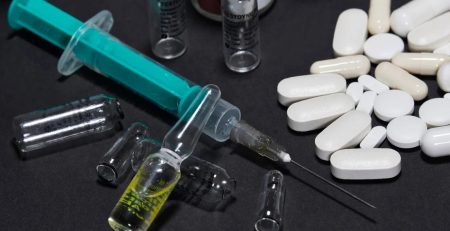The relationship between anabolic steroids and tendon strength
Introduction
Long known for their ability to increase muscle mass, anabolic steroids are frequently utilized by bodybuilders and athletes to improve performance. Yet another potential advantage of anabolic steroids has also come to light recently, and that is their beneficial effect on tendon strength. Tendons are essential connective structures that join muscles to bones to allow for mobility and stability.
In this blog post, we will explore the emerging evidence of the positive relationship between anabolic steroids and tendon strength, as well as the potential implications for athletes and individuals with tendon-related issues.
Understanding Tendons and Their Importance
Tendons play a crucial role in musculoskeletal function, transmitting the forces generated by muscles to bones during movement. These tough, fibrous structures are responsible for the stability and efficiency of joint movements, making them essential for athletic performance and everyday activities.
Tendons are subject to stress and strain during physical activity, and injuries or degenerative changes can lead to significant pain and limitations in mobility.
Collagen Synthesis and Tendon Stiffness
Collagen is the primary protein component of tendons, responsible for their strength and resilience. Anabolic steroids have been shown to increase collagen synthesis, leading to higher collagen concentrations within tendons. This enhanced collagen content contributes to increased tendon stiffness, making them more resistant to mechanical stress during intense physical activities.
Improved Tendon Cross-Sectional Area
Anabolic steroids have been reported to increase the cross-sectional area of tendons. A larger tendon cross-section allows for a better distribution of forces, thereby reducing the risk of overloading and potential injuries. This adaptation can positively influence tendon strength and durability, especially in athletes engaged in repetitive and high-impact activities.
Tendon Healing and Recovery
Tendon injuries can be challenging to heal due to their limited blood supply and slow cellular turnover. Studies have suggested that anabolic steroids may aid in the healing process by promoting collagen synthesis and cellular proliferation at the site of injury. This effect can accelerate tendon recovery, allowing athletes to return to their activities more quickly and with reduced risk of re-injury.
Enhanced Athletic Performance
Strong and resilient tendons are essential for optimal athletic performance. Athletes with better tendon strength are less prone to injuries, allowing them to train more consistently and with higher intensity. The positive relationship between anabolic steroids and tendon strength may offer athletes a competitive advantage by reducing the risk of tendon-related setbacks.
Injury Prevention and Rehabilitation
For individuals recovering from tendon injuries, anabolic steroids may play a role in improving rehabilitation outcomes. The increased collagen synthesis and enhanced tendon cross-sectional area can support the healing process and contribute to a successful recovery.
Conclusion
While anabolic steroids are well-known for their muscle-building properties, their positive relationship with tendon strength is an emerging area of research with potential implications for athletes and individuals with tendon-related issues.
The ability of anabolic steroids to promote collagen synthesis, improve tendon cross-sectional area, and aid in tendon healing suggests that they may contribute to stronger and more resilient tendons.
Related Products












Leave a Reply